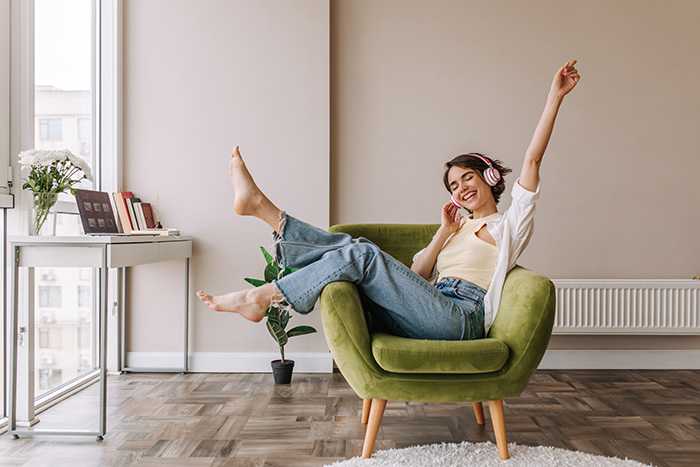Can you transform your home into a safe haven for those who don’t drink, a place that celebrates all your progress in your recovery while strengthening your commitment to staying clean?
It is not a pipe dream but rather an achievable reality. If you’re wondering how to create a supportive, sober environment at home, you’ve come to the right place!
Keep reading to learn about practical tips and strategies to help you turn your living space into a haven of support and inspiration!
How to Create a Supportive Sober Environment at Home
Creating a sober environment in the house is a critical part of treating drug addiction. It’s about establishing a zone that supports recovery and reduces the chances of relapse.
However, it may be challenging to create this supportive climate, especially when there are reminders of past substance use.
The first thing to do is eliminate all possible triggers as one creates a supportive, sober environment.
Possible Triggers in Your Home for Substance Abuse
- Liquor bottles
- Drug paraphernalia
- Prescription medications
- Certain movies and television shows
Clearing the Clutter in Your Home: An Essential Step to Conquer Challenges
Declutter your home and remove anything that might cause you to go back to drugs to overcome these challenges.
This might mean disposing of any alcohol or drugs around, getting rid of drug paraphernalia, as well as storing prescription medications correctly.
Addressing Emotional Triggers: A Key Component
In addition to removing physical triggers, addressing emotional triggers is essential. Examples of emotional triggers include:
- Negative memories associated with drug use
- Old friends who may still be using drugs
- Overwhelming emotions that may lead to seeking solace in substances
Creating a Positive Atmosphere
Once all potential triggers are eliminated from your surroundings, it’s time to make the atmosphere in your house positive.
This can involve including elements like self-care and mindfulness in each day. Some ideas for creating a positive atmosphere at home include:
- Create a sober space- designate some specific area within your home meant for relaxation and self-care, such as putting up a comfortable chair or having an altar for meditation.
- Practice daily gratitude- start each day with a grateful mindset by writing down three things you are thankful for. This can help shift your focus to the positive aspects of your life.
- Engage in regular exercise- physical activity promotes physical health and can improve mood and reduce stress and anxiety.
- Surround yourself with positive influences- whether it’s through virtual support groups or connecting with sober friends, surrounding yourself with positive influences can help reinforce your sobriety.
Creating a Sober Environment by Communicating with Others
One should be open in communication for a supportive, sober environment at home. This entails being true to oneself about struggles and needs while being ready to take on others’ issues.
Some tips for effective communication in a sober home include:
- Use “I” statements- instead of blaming or accusing others, focus on expressing your feelings and needs using “I” statements.
- Practice active listening- give the speaker your full attention, ask clarifying questions, and reflect on what you heard to ensure understanding.
- Set boundaries- establish boundaries with loved ones and communicate them clearly. This can include limits on alcohol in the house or requesting support in maintaining your sobriety.
- Seek outside support- consider seeking therapy or attending support groups for additional guidance on effective communication techniques.
Effective communication is crucial for maintaining a supportive sober living environment.
This involves open and honest communication with oneself and others to strengthen the recovery process, leading to an environment of growth.
Group Support and Therapy
Support groups are necessary within addiction treatment programs alongside group therapy and family therapy.
These programs offer shared experiences and collective learning, enabling participants to feel part of something bigger than themselves.
Some support groups include
Personal therapy can also provide one-to-one guidance specifically tailored to an individual.
A therapist will address the underlying mental health issues and provide practical coping skills while still in the recovery stage.
Sober living homes such as The Last House and The Nook offer structure for some individuals who need it.
These houses give you companions who have gone through what you have, making getting clean less isolating.
Thrive Group Treatment Understands How to Create a Supportive, Sober Environment at Home
Creating a supportive, sober environment at home goes beyond just physical changes.
It goes further into seeking mental health first, creating a safe circle, and making a commitment to healing from addiction.
We at Thrive Group Treatment Centers are here to walk with you on this journey.
Be it through our comprehensive outpatient programs (Thrive Treatment – PHP, IOP, Outpatient) or specialized teen outpatient services (Thrive Teen), we have what it takes to help you through.
Your home should be an oasis of rest and recovery rather than a warzone.
Begin building your pathway to sobriety today and form a home environment that genuinely supports your quest for a healthier and happier lifestyle by contacting Thrive Group today!





